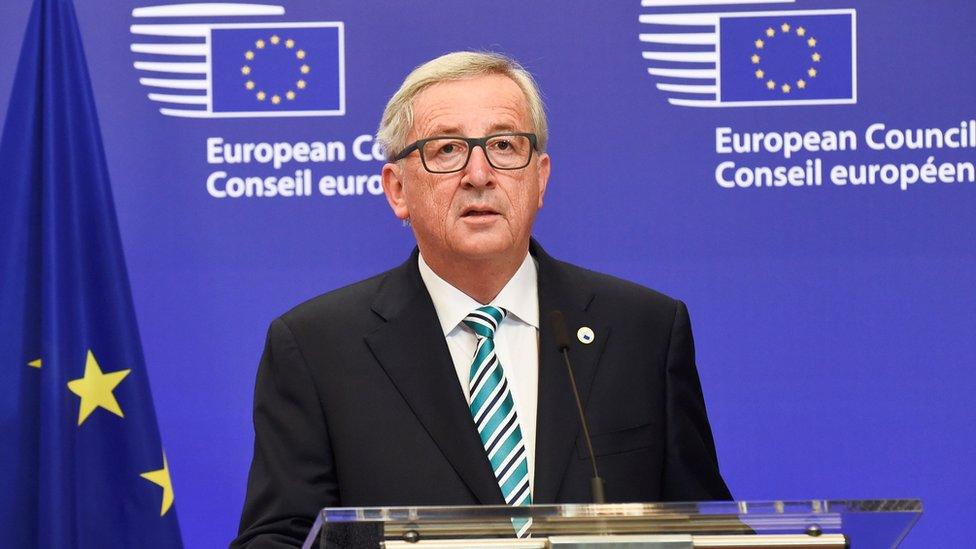Brexit: Court battle looms over rights of Parliament
- Published

Gina Miller says the government is exceeding its powers
Arguments over Brexit have been raging in Parliament and the country since June's Leave vote and this week they move to the High Court.
On Thursday, an investment manager and hairdresser will challenge the right of the government to start the process of withdrawing the UK from the EU without a vote in Parliament.
Lawyers will question whether Prime Minister Theresa May is entitled to act unilaterally, using powers left over from the days of medieval monarchs.
It could end up - in theory - with Parliament being given a means to stop Brexit.
So as constitutional rows go, it is box office stuff.
Or as professor of public law at Cambridge University, Mark Elliott, puts it: "I don't rule out the possibility of the government losing the case."
Making enemies
Leading the fight against the government is Gina Miller, who runs an investment firm in London, SCM Private.
She argues that only Parliament can make a decision that leads to the loss of her "rights" under EU law.
She is confident she has a strong case and is undaunted by criticism.

Top QCs David Pannick and James Eadie are going head to head
"I do not back away from a fight," she says. "I'm very vocal about things and I'm no stranger to making enemies."
She is joined by London-based Spanish hairdresser Deir Dos Santos and the People's Challenge group, set up by Grahame Pigney and backed by a crowd-funding campaign.
Expats
Also weighing into the case against the government is the group, Fair Deal for Expats.
Around two million British citizens are believed to live and work in other EU countries.
The Brexit terms have not been decided but expats - some of whom were barred from voting in the referendum - fear potential repatriation and are worried about the impact on their jobs and homes as well as the ramifications for healthcare, their children's schooling and pensions.
Star barristers
Three London law firms - Mishcon de Reya, Edwin Coe and Bindmans - have agreed to take up the case. Croft Solicitors is representing the expats.
Superstar of the bar" Lord Pannick QC - also an independent member of the House of Lords - will be arguing Gina Miller's case while the government is turning to an old favourite, James Eadie QC.
Attorney General Jeremy Wright QC, the government's legal adviser, will also play a big role.
He said: "There must be no attempts to remain inside the EU, no attempts to re-join it through the back door, and no second referendum.
"We do not believe this case has legal merit. The result should be respected and the government intends to do just that."
Prime Minister or Parliament?
In political terms, the UK is on course for departure from the EU. But as far as the law goes, nothing has changed.
The UK remains a fully paid-up member of the EU until it triggers Article 50 of the Treaty of Lisbon 2007.
The question at the heart of the row is: who should activate Article 50? The prime minister or Parliament?
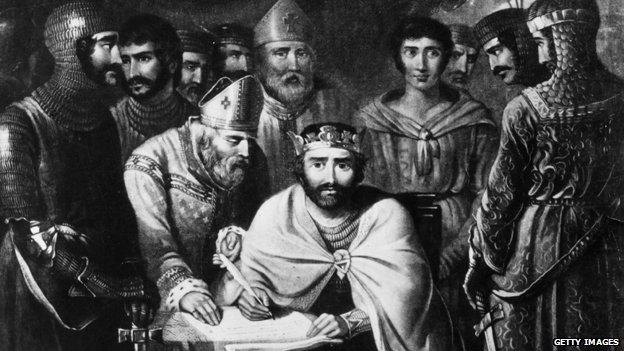
King John signs Magna Carta in 1215, an early attempt to curb the Royal Prerogative
During the referendum campaign, the then prime minister, David Cameron, said that in the event of a Leave vote he would activate Article 50 immediately. The government maintains that his successor Theresa May has the authority to do so, without a vote by MPs.
That right - they say - is based on the Royal Prerogative - powers once held by kings and queens to do, essentially, what they wished.
Regal powers
The use of prerogative powers in a modern parliamentary democracy is a curious corner of British law.
Over centuries, power in the UK has been wrested away from dictatorial monarchs and handed to elected politicians.
But government ministers have managed to cling on to a few of those regal powers, usually in international affairs.
One such prerogative is the power to make and break treaties with other countries.
The government's position is that triggering Article 50 is all about ending a treaty with other EU countries and so using prerogative powers in these circumstances is "entirely consistent with standard constitutional practice".
Critics will argue in the High Court that it is a bit more complicated than that.
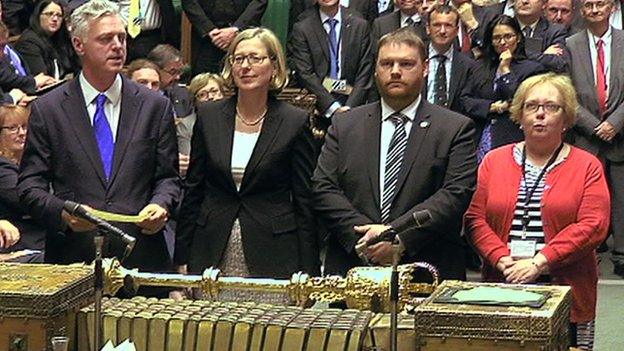
The Commons backed legislation setting up a referendum on the UK's membership of the EU
They say that activating Article 50 effectively wipes out the European Communities Act 1972, passed by Parliament and allowing EU law to apply in the UK.
Lawyers opposing the government argue that the 1972 Act introduced a big constitutional change and gave British people new rights.
It would be unlawful, they conclude, for a prime minister to use the Royal Prerogative to take away rights bestowed by Parliament.
Unprecedented
Grahame Pigney, from the People's Challenge, says the "enforced removal" of citizenship rights from 65 million people would be "completely unprecedented" in a modern democracy.
"I believe that, as Parliament has granted us these rights, it is for Parliament to decide when, how and under what circumstances they are taken away," he says.
Lawyers working for Fair Deal for Expats will be deploying similar legal arguments but using evidence to emphasise the human impact of Brexit.
Cancer treatment
The chairman of Fair Deal for Expats, John Shaw - who lives in France - has submitted a statement to the High Court saying the referendum result was a "shock".
He is currently undergoing cancer treatment in France.
He states: "If my right to access healthcare is either taken away, or compromised materially such that I am not able to rely upon it in the same way as French nationals, I would be unlikely to receive, or be able to afford, the same level of care in France."
His lawyers will tell the High Court that the rights enjoyed by British citizens "beyond these shores" are so fundamental that legislation is "required" to take them away.
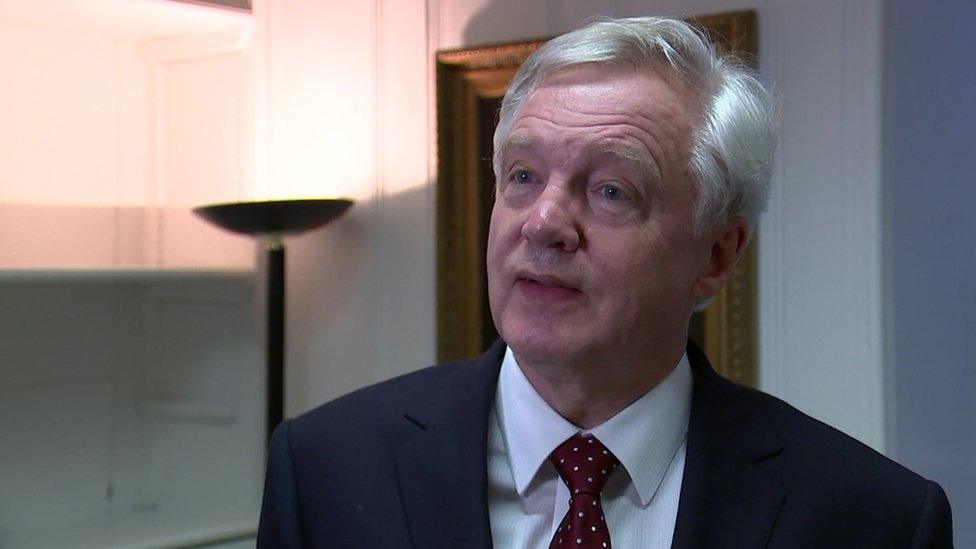
Brexit Secretary David Davis says there is a difference between "accountability and micro-management"
But in legal papers setting out the government's case - released last week - it insists that starting the withdrawal process will not have any impact on British laws and any changes will be decided in future negotiations.
The Royal Prerogative is just one of the arguments to be aired in the High Court.
There will be heated debates about the 2015 European Union Referendum Act, which paved the way for a referendum.
In their legal papers the government states that Parliament passed that Act on the "clear understanding" that the outcome of the referendum would be "respected".
If Gina Miller wins the case - it adds - it will not be able to "give effect to the will and decision of the people".
Fraud
Conservative chairman of the European Scrutiny Committee, and prominent Leave campaigner Sir Bill Cash thinks the government has a strong case, saying: "To attempt to revisit the decision by another Act of Parliament is a kind of fraud on the electorate."
But lawyers at Mishcon de Reya say the idea was to set up an "advisory" referendum - not a binding one.
They state: "Nowhere in the 2015 Act does it specify the consequences that should follow from the referendum result."

Tory MP have said that prerogative powers are underpinned by the will of the people
The biggest weapon in the government's armoury could be that the whole issue is not a matter for the UK courts at all.
They says it is a complex decision that must be made by ministers.
Sir Bill Cash said: "We could have a situation where judges are imposing a requirement on Parliament, via the secretary of state, to make legislation.
"That's outside the rules. The proceedings of parliament are outside the jurisdiction of the court."
Exceptional situation
Lord Chief Justice of England and Wales, Lord Thomas of Cwmgiedd, will hear the case - which is expected to last a couple of weeks.
Mark Elliott says it is very hard to know which way it will go.
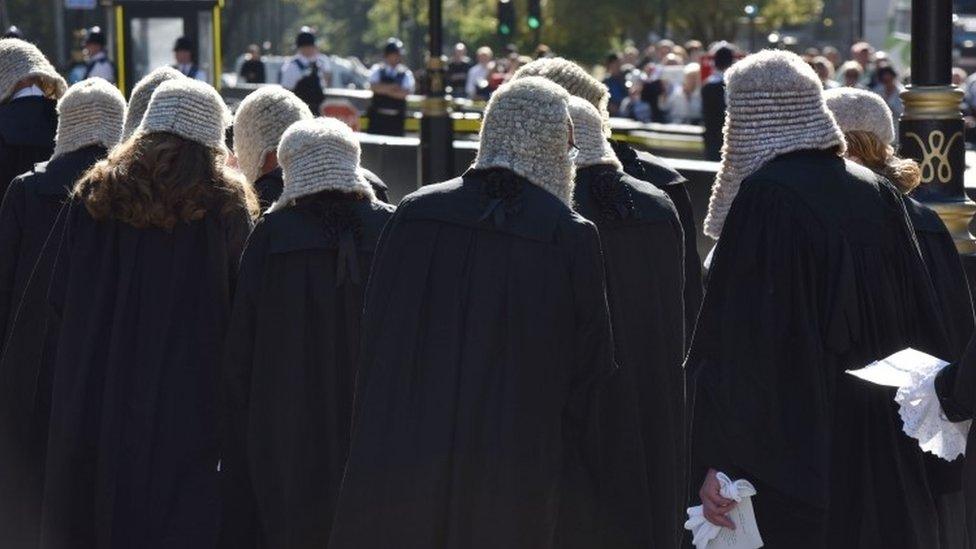
The case is likely to be the first in a number of legal battles over Brexit
"If the court simply applied existing case law, the government would win. The question is whether the court will go beyond existing territory and treat it as an exceptional situation. The court may develop the law."
Putting the legal arguments aside, some Brexit supporters say that the High Court case is a fig-leaf for a political campaign to keep the UK inside the EU.
Gina Miller disputes that and argues that Leavers and Remainers should back her case against "prerogative creep".
"The idea that a court case can put a halt to Brexit is nonsense and it has nothing to do with altering the timetable. What we are looking for is legal certainty."
Game-changer
If the court concludes that Parliament must approve Article 50, that could be a game-changer.
The majority of MPs campaigned for the UK to remain in the EU. They could, in theory, vote against the activation of Article 50.
But would they risk enormous political and social ructions by rejecting the referendum result?
Most members of the House of Lords are also opposed to Brexit. That raises the possibility of another extraordinary scenario - an unelected Lords voting against the wishes of 17.4 million people.
If the government loses its case in the British courts, they could eventually go to the European Court of Justice.
It raises the possibility of a truly strange scenario - Brexit ministers asking European judges to overturn the decision of the British courts.
- Published10 October 2016
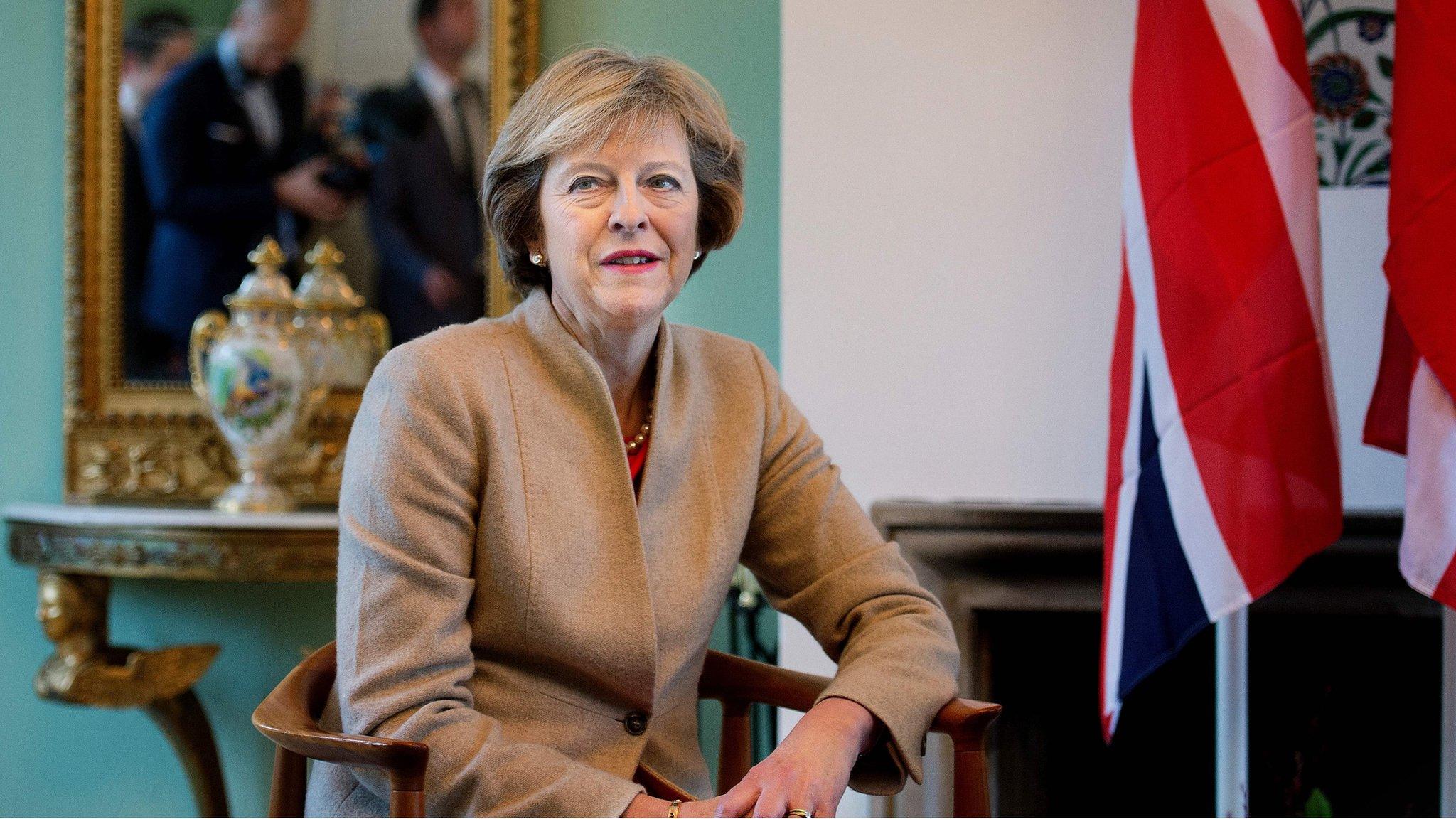
- Published9 October 2016
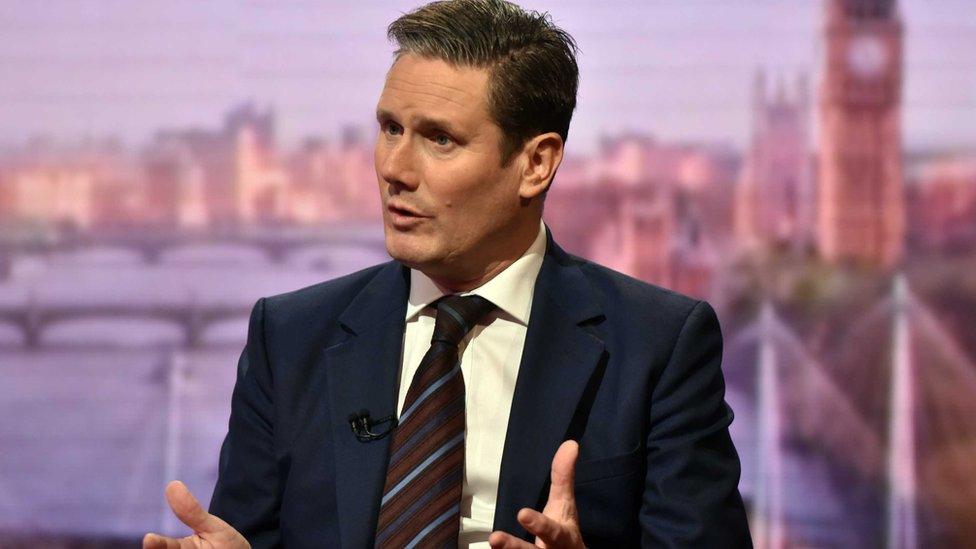
- Published7 October 2016
